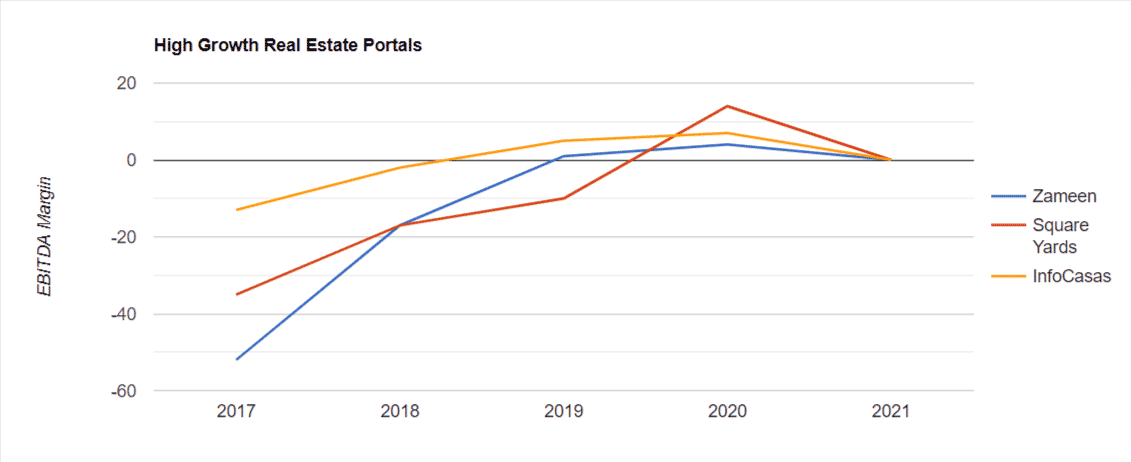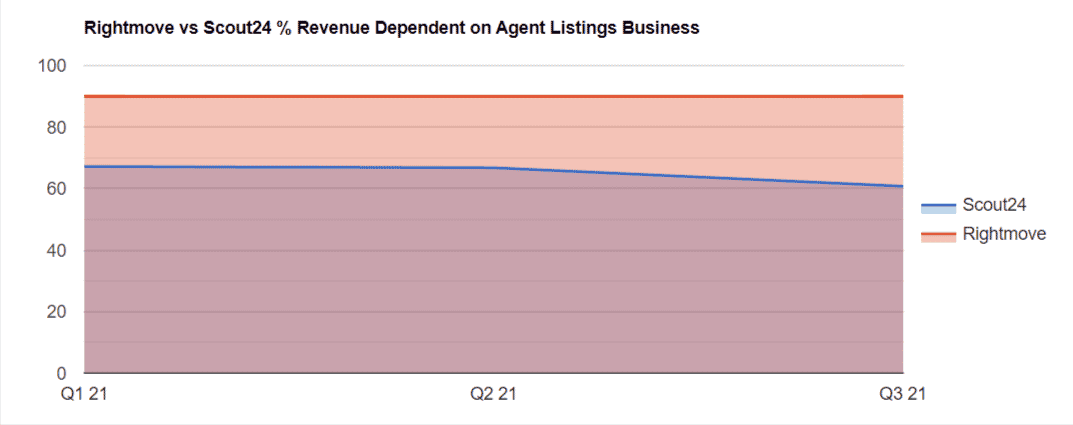
German real estate portal operator Scout24 is pioneering a new paradigm in the online classifieds industry.
The idea of generating revenue not from listings but from property transactions is not a new one and Scout24 is hardly the first company to sell its shareholders a dream about it.
That said, Scout24's December company strategy presentation and its exemplary corporate disclosure in its reporting give us perhaps the most comprehensive and coherent example of a portal company's strategy around moving closer to the transaction without disintermediating agents or owning homes.
In the two previous articles in this series, we have delved into exactly what the new way of thinking constitutes and how Scout24's new array of products serve the needs of all stakeholders in property transactions and increase the company's revenue pool in doing so. In this last piece, we'll look at why a company like Scout24 with such a dominant position in a mature market has seen it necessary to invest hundreds of millions of Euros into the change.
Millennial buyers, more tech-savvy agents, lower revenue from third-party ads, low supply and high demand - there are plenty of big, scary macro-economic trends out there that over time might contribute to a decision to change the way a real estate shop window business makes money.
There is one slightly more immediate concern though that prompted Scout24 to change its paradigm and move towards a different way of generating revenue.
Like sharks, publicly traded companies must move forwards at all times and the pressure to do so is even greater when their traditional revenue streams hit a ceiling. This was the case for Scout24's mostly listings based business model in 2019 when it divested from its autos portal and is a situation that, sooner or later, all real estate portals will have to deal with in their journeys.


As the graphs show, the fundamentals (agent-customer numbers and average revenue per customer) powering Scout24's traditional listings based business aren't exactly soaring to new heights.
The point of diminishing returns has been reached here and the needle is arguably being moved more by market fluctuations than by any pushes or new strategies that the portal implements. In short, Scout24 can't just find new agencies to become its customers behind the sofa and it can't add an extra 0 to the marketing budgets of its existing customers.
The old online-classifieds model is based on charging agents to list their properties on your marketplace. While the market you operate in matures and agents earn more and more money with which to promote their listings with your products, your growth as a shop window business can be very quick.

Zameen (the market leader in Pakistan) along with several other portals in developing agent markets are great examples of portal businesses experiencing great growth in parallel with the markets they operate in - interestingly though all three featured here have diversified their businesses beyond listings to accelerate growth and mitigate the risk of hitting a revenue ceiling.
When the property market matures, however, the percentage of revenue growth demanded by your shareholders may not be in line with the realities being faced by your agent customers who can no more support a portal price increase as they can magic up more inventory to sell.
The old online-classifieds model has a ceiling and the management at Scout24 saw that ceiling coming up on them in 2019 and reacted to it.
It helps to have a comparison here for a sense of perspective. For Scout24 the obvious comparison is with British market leader Rightmove. Broadly speaking, the two businesses operate in very similar markets with similar brand awareness and dominance, agent numbers, revenue and profit.

n.b. Rightmove HY21 margin is an estimate based on previous performance
While the two might have ostensibly similar bottom lines, the whole reason behind Scout24's new approach is to make sure that under the hood its business is more diverse and more resistant to change than that of Rightmove - which famously has been based on upping the prices of its listings packages for agents.
We can see that when Covid-19 hit and portals were forced to concede discounts to their agents for listings packages, Rightmove's revenue generation suffered to a far greater degree than that of Scout24 because of its reliance on agents' ability and willingness to pay for listings promotion packages.
Scout24's new paradigm might be about focusing on transactions rather than listings but it is also about moving from an over-reliance on one customer type and one business model. With the introduction and marketing of all the new products and services (particularly Immoverkauf24 in 2021), Scout24 is reducing its exposure to the market forces that act on agents' ability and willingness to pay for listings packages while not disintermediating them in any obvious way.

Essentially then, there are several reasons, but also just one: Scout24 changed what it was doing because it had to. All portal businesses that reach the same levels of success in mature markets will face a similar reckoning as they inevitably bump up against the ceiling of the online-classifieds model.
It might seem obvious to say that as a successful real estate portal business sooner or later a critical mass of agents in your market will already be your customers and that, eventually, those agents won't be willing or able to support price increases to listings packages. It also seems like a business axiom to say that a more diversified revenue base is always a good idea.
Without the luxury of clear examples though, the obvious can sometimes seem distant.